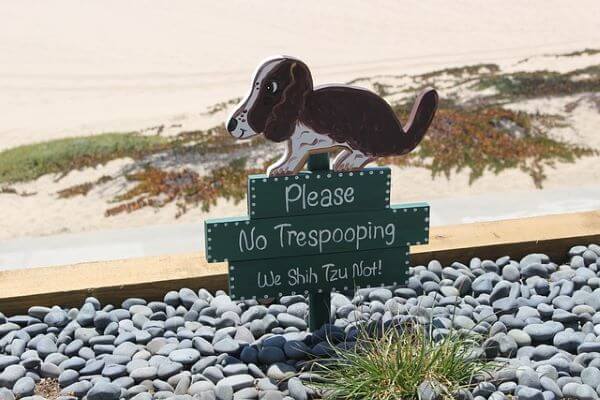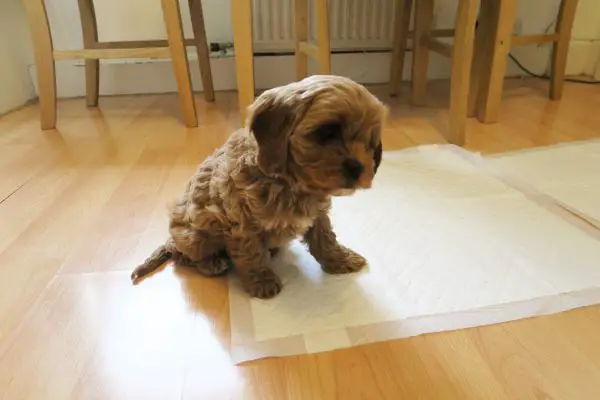Dog urine is unlikely to make you sick, although it could possibly cause some health problems in certain circumstances.

One potential risk associated with dog urine is the presence of bacteria such as E. coli.
E. coli can cause gastrointestinal infections. It should be noted that the risk of infection is generally low, and most people will develop health problems from occasional exposure to dog urine.
Another risk is exposure to ammonia, a chemical present in urine which can cause respiratory irritation and other health problems if inhaled in large quantities. This is more of a concern in situations where there is a lot of urine present, such as in an indoor environment with poor ventilation or in a heavily contaminated outdoor area.
While exposure to dog urine may not be pleasant, it is unlikely to make you sick as long as you practice good hygiene and avoid prolonged or excessive exposure to the urine. If you have concerns about exposure to dog urine or are experiencing any symptoms of illness after exposure, it’s a good idea to check in with your doctor.
Can you get sick from breathing dog urine and faeces?
Breathing in dog urine and faeces can pose health risks, especially if the area is not properly ventilated or cleaned up. Exposure to the odour of urine and faeces can cause respiratory irritation and other health problems, particularly for people with pre-existing respiratory conditions such as asthma or COPD.
What is COPD?
COPD is a chronic lung disease. Quite a lot of people suffer from it. My nan had it for many years. It affects the airways in your lungs and reduces breathing capacity.
What happens if you breathe in dog faeces and urine?
As well as the odour, the bacteria and other microorganisms present in urine and faeces can potentially cause infections if you inhale a lot. As mentioned above bacteria such as E. coli is a real problem and Salmonella bacteria is also found in animal waste.
Exposure to urine and faeces can also increase the risk of exposure to parasites such as roundworms and tapeworms, which can be very dangerous for adults and more especially young children and the elderly.
It’s important to take precautions when dealing with dog urine and faeces, especially in enclosed or poorly ventilated areas.
Precautions you can take include:
- Washing your hands
- Cleaning up waste
- Wearing gloves (see best gloves for picking up dog poop)
- Ensure the affected area is disinfected and cleaned
Next, we’ll talk about the dangers of dog urine around the house.
What are the dangers of dog urine in the house?
Dog pee in the house may not seem like a big deal at first, it can potentially pose several health risks if not properly cleaned up.
Bacterial Infections: Dog pee contains bacteria that can cause infections if it comes into contact with an open wound or enters the body through inhalation or ingestion. Exposure to urine can lead to conditions like gastroenteritis and leptospirosis.
Respiratory Problems: Dog urine produces ammonia as it decomposes, which can cause respiratory problems if inhaled for prolonged periods. Prolonged exposure to ammonia can cause respiratory issues like bronchitis, pneumonia, and asthma.
Skin Irritation: If dog pee meets the skin, it can cause irritation and even chemical burns because it’s acidic and can irritate the skin, causing redness, itching, and even rashes.
Structural Damage: Over time, dog urine can cause structural damage to floor, walls, and other surfaces. If left untreated, it can seep into porous surfaces and become extremely difficult to remove. Training your dog with pee pads can help avoid this. Read our post on are puppy pads a good idea to find out more.
My Cavapoo puppy, Bean, responded well to this method and he was housetrained pretty quickly.

What neutralises dog urine?
There are several ways to effectively neutralise dog pee and help eliminate the odour and potential health hazards associated with it.
Here are some ways to neutralize dog urine:
Vinegar: Mix equal parts of white vinegar and water and apply it to the affected area. Allow it to sit for 5-10 minutes before blotting it up with a clean cloth.
Baking Soda: Baking soda is a natural deodoriser that can neutralise dog urine. Sprinkle a generous amount of baking soda over the affected area and allow it to sit for 10-15 minutes. Vacuum up the baking soda and then clean the area with a mixture of water and vinegar.
Enzymatic Cleaners: Enzymatic cleaners are designed to break down the proteins in dog urine and neutralize the odour. Apply the enzymatic cleaner to and allow it to sit for 10-15 minutes. Blot up excess with a clean cloth.
Hydrogen Peroxide: Hydrogen peroxide is a mild bleach that can help to break down the components of dog pee. Mix equal parts of hydrogen peroxide and water and apply it to the affected area. Allow it to sit for a few minutes before blotting it up with a clean cloth.
Remember to always test any cleaning method or product in a small, inconspicuous area before applying it to the entire affected area to ensure it does not cause any discoloration or damage.
How do I keep my house from smelling like dog urine?
Keeping your house from smelling of dog pee requires a combination of cleaning and prevention methods.
Here are some ways to keep your house smelling fresh and clean.
Clean Accidents Immediately: Clean up any accidents immediately to prevent the urine from seeping into surfaces and causing a lingering odour. Use paper towels or a clean cloth to get the pee up, then use a cleaning solution like vinegar to get rid of any smell.
Use an Air Purifier: Air purifiers can help eliminate smells by trapping airborne particles that cause unpleasant smells.
Wash Bedding and Fabrics: Wash all bedding, blankets, and fabrics that come into contact with your dog regularly to prevent the smell building up. Use a pet-specific detergent that can remove any lingering pet odours.
Vacuum Regularly: Vacuum your carpets and rugs regularly to remove pet hair and dander that can cause unpleasant smells.
Train Your Dog: Properly train your dog to use outdoor areas for doing his or her business. This can help prevent accidents inside the house and reduce odours.
Check out our post on potty training Cavapoos to learn more. Bean was relatively easy to train, because he’s eager to please. In my experience, most dogs want to please you. If you use proven methods to train your pup, you shouldn’t have any trouble.
Regular cleaning can help keep your home smelling fresh and clean and provide a healthy environment for both you and your furry friend.
Wrapping Up
Dog pee in the house can pose several health risks and cause unpleasant smells if not properly cleaned and prevented. By taking the necessary steps to neutralise urine and prevent accidents, you can keep your house smelling fresh and clean while providing a healthy environment for both you and your pup.
Remember to promptly clean up any accidents, use natural cleaning products, wash fabrics and vacuum often to keep your home odour-free. With these simple steps, you can enjoy a clean and healthy home with your beloved dog.
